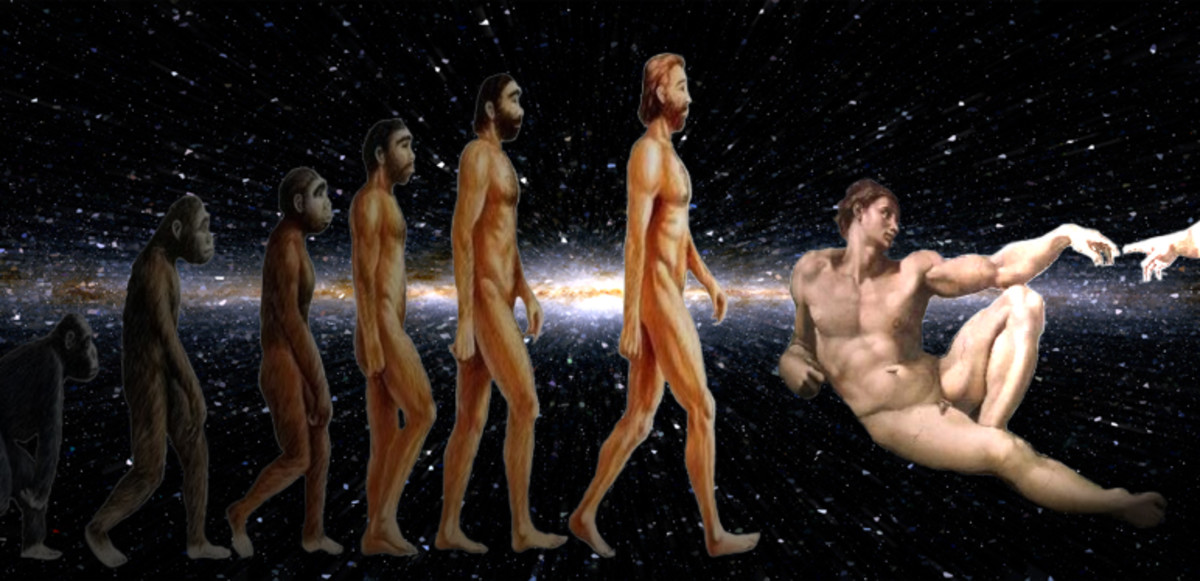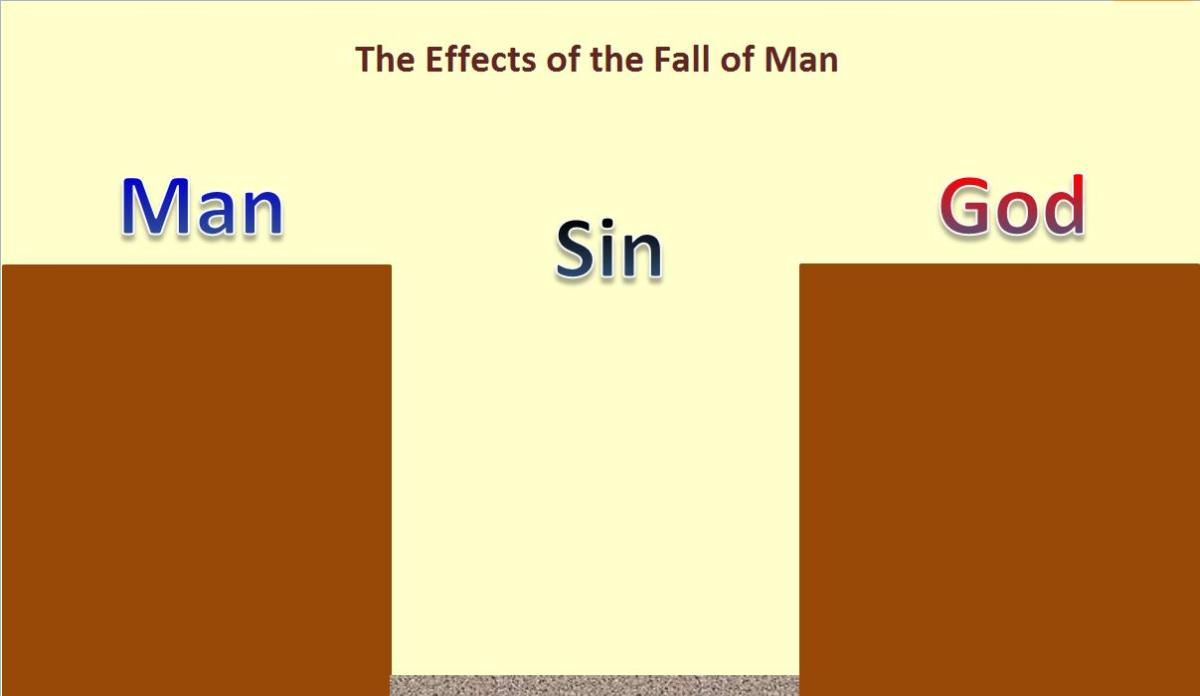God Of Creation - Jehovah-elohim

Genesis 2:4-25
This is the account of the heavens and the earth when they were created, when the Lord God made the earth and the heavens. Now no shrub had yet appeared on the earth and no plant had yet sprung up, for the Lord God had not sent rain on the earth and there was no one to work the ground, but streams came up from the earth and watered the whole surface of the ground. Then the Lord God formed a man from the dust of the ground and breathed into his nostrils the breath of life, and the man became a living being. Now the Lord God had planted a garden in the east, in Eden; and there he put the man he had formed. The LordGod made all kinds of trees grow out of the ground—treesthat were pleasing to the eye and good for food. In the middle of the garden were the tree of life and the tree of the knowledge of good and evil. A river watering the garden flowed from Eden; from there it was separated into four headwaters. The name of the first is the Pishon; it winds through the entire land of Havilah,where there is gold. (The gold of that land is good; aromatic resin and onyx are also there.). The name of the second river is the Gihon; it winds through the entire land of Cush. The name of the third river is the Tigris; it runs along the east side of Ashur. And the fourth river is the Euphrates. The Lord God took the man and put him in the Garden of Eden to work it and take care of it. And the Lord God commanded the man, “You are free to eat from any tree in the garden; but you must not eat from the tree of the knowledge of good and evil, for when you eat from it you will certainly die.”. The Lord God said, “It is not good for the man to be alone. I will make a helper suitable for him.”. Now the Lord God had formed out of the ground all the wild animals and all the birds in the sky. He brought them to the man to see what he would name them; and whatever the man called each living creature, that was its name. So the man gave names to all the livestock, the birds in the sky and all the wild animals. But for Adam no suitable helper was found. So the LordGod caused the man to fall into a deep sleep; and while he was sleeping, he took one of the man’s ribs and then closed up the place with flesh. Then the Lord God made a woman from the rib he had taken out of the man, and he brought her to the man. The man said,
“This is now bone of my bones
and flesh of my flesh;
she shall be called ‘woman,’
for she was taken out of man.”
That is why a man leaves his father and mother and is united to his wife, and they become one flesh. Adam and his wife were both naked, and they felt no shame.
Introduction
At the summer Olympics, a reporter noticed a man carrying a long pole through the Olympic Village. The reporter stopped the man and asked him, “Excuse me, are you a pole vaulter?”The man replied with a distinct German accent, “Nein, I am a German, but how did you know that my name was Walter?” [Michael E. Hodgin. 1002 Humorous Illustrations For The Public Speaking, Grand Rapids: Zondervan, 2004, p. 251.]
Names are important. Names provide us with a sense of identity. They help us to know who we are and where we belong. A name links us with a family.
I recently was served at the checkout by a woman named Ethel. I commented that her name was not a name you see too often anymore and she told me that her name was in honor and in memory of her grandmother. We celebrated for the moment the beautiful fact that this middle-aged woman was a literal living memory of a significant person in her family.
Names also provide characteristics of who we are. In Western cultures, a person is generally given a first and a last name. The family name identifies them as a member of that family, but the first name is more personal and unique to that individual and sometimes has some significance to the parents. I other cultures, a name is often given to describe something important about that person.
I would like to start a Hub series about names - specifically some of the coumpound names of God. In this series of Hubs, we will be exploring the meaning of names.
Introduction To The Series
So, this series is about names – that is, some of the names of God. Very much so, in this series we will be considering the question of, ‘How do we describe the indescribable?’
It’s a bit difficult for us in western cultures who have names that don’t have much meaning beyond an identification.But in the ancient culture of the Bible, someone was named for a certain characteristic of that person or an expectation that that person was expected to fulfill.
So it is with the many names of God: they reveal an attribute or characteristic of God and who God is, in addition to describing how God acts or will act toward God’s people. As we consider the names of God that are revealed in Scripture, we will at the same time end up learning a lot about God-self. And as we learn about who God is, we better understand who we are as God’s people.
But I need to give a disclaimer as well: We will not be looking at all of God’s names, because God is named, described, compared and contrasted many, many – many – times throughout the Scriptures.We definitely, don’t have the space to cover them all. But what we will be doing is to look at what might be called God’s compound names. A compound name is a name that is linked with an adjective or some characteristic.
As you might guess, there are many compound names for God as well!In this series, we also will not be able to cover all of them either.But in the coming Hubs we can cover a good number of them, and as we do, we will be able to learn some important things about our awesome, indescribable God.
The Name Of God
It’s easy for us to forget that the English word “God” is not God’s name – it is God’s title.God is, well, God. When the Bible opens with the words: “In the beginning, God…” we are not told what God’s name is, because it is not used – the title is used. The Hebrew word that is used in the first chapter of Genesis is “el”, which translates literally as “God” (god). In fact it does not appear in the biblical narrative that humans even knew God’s name prior to Moses’ encounter with God on Mount Sinai at the burning bush.In this encounter, Moses asked what name he should say was the One who had sent him.God told Moses that, I AM was the One who was sending him.Without getting too complicated in this Hub – we will chip away at this topic of understanding God’s name in the coming Hubs – we can say for now that God’s name is “Jehovah.”
In Genesis, chapter 1, God is identified simply as “el”, which is a generic term for God, meaning Mighty, or the Strong One. In chapter 2 an actual name is given for the retelling of the Creation story. The name used is translated as: LORD God. In Hebrew, the two words are: “Jehovah” and “elohim”. Let’s look at each of these words.
Jehovah – is the proper name of God. Sometimes this name is rendered as Yahweh (we’ll get into why there is a different rendering some other time). Jehovah means: the One who always is, the Self-existent One. This echoes what Moses was told, that God is the “I AM, or the, “I AM THAT I AM.” God is the Ever and Self-existent, Self-sufficient, Self-complete, God. In Genesis 2, this name, “Jehovah” is linked with the Hebrew word, “elohim”.
elohim – Remember that the word “el” is used in chapter 1, meaning the Strong One, the Mighty One, or the Creator, in chapter 2 a new form of el is used in the form of “elohim.” Elohim is a plural form of the majestic meaning of el.This is interesting, isn’t it in light of the statement in Genesis 1, “Let us make humans.”, and that we proclaim the Triune God of Father, Son, and Holy Spirit. Or as I saw one definition put it, “elohim” is a “uni-plural” word. Elohim portrays God as the powerful, transcendent Creator of the universe. So, it is appropriate that elohim is used in connection with God’s creation. This word consistently is used in reference to God’s creation, but Jehovah is used when the text makes a moral statement.
For this reason, it makes sense that we see the name Jehovah-elohim in the chapter 2 creation account, because in chapter 1, God is pictured as simply creating, where in chapter 2, God is interacting with what God had made and giving creation meaning.
“Challenges” With Chapter 2
The compound name Jehovah-elohim is used for the first time in chapter 2, so to understand what this name of God means, we need to look at what the chapter is about. Unfortunately, the chapter is difficult to understand.As one commentary writer said: “every inch of this chapter is a battleground.” (Leupold On The Old testament, Genesis, I, p.105)
There are some, let’s say – challenges – with Genesis, chapter 2. Here are just some of them:
-As a creation story, chapter 2 is very different from chapter 1, so what is the relationship between these two accounts?
-Chapter 2 seems to be setting up the situation for Genesis 3, which tells the story of how sin entered into the human equation, so what is the relationship between chapter 2 and chapter 3?
-Chapter 2 is a “myth story.” Now understand, by my use of the word myth is not to imply that the story is untrue. Whether the details of the story actually happened in “real” history is irrelevant to the purpose of the story. The Bible was never meant to be a textbook for science or ancient history. It’s not a question about whether something is true or untrue, what matters is that the stories in the Bible contain truth! So, then what is the story telling us? About ourselves? About God?
-Chapter 2 deals with several separate topics. It would take a long time in a Bible study session to deal properly with each of these topics. And within the limits of one Hub, we don’t have the space to deal with them properly.
-Our purpose for looking at Genesis chapter 2 is that it reveals, for the first time, a compound name of God – Jehovah-elohim, rendered as LORD God in our English Bible. That’s why we are considering the chapter, to glean what we can about God by seeing how one of God’s names is used.In chapter 2, and also in chapter 3 Jehovah-elohim is used as much as twenty times, and then it is not used again after these two chapters. The names Jehovah and elohim are used many times throughout the OT, but these two chapters are the only place where they are used together as a compound name. So, generally speaking – i.e. without getting bogged down in the complexities of Genesis 2 – what can we learn about Jehovah-elohim in this chapter?
Things We Can Learn About God
So, what can we learn about God from Genesis chapter 2?
1) The first thing is that God is the mighty creator. The use of the word “elohim” is meant to portray God as grand, powerful and mighty. God is the mighty creator of the universe and all of creation, including the creation of human beings.
2) Also, God is identified here in this chapter as the God. Ancient Mesopotamian writings about a god often would put some determinative noun before the god’s name to indicate the god’s rank. And so the name LORD God means the God Jehovah – in other words, Jehovah is the only true God!
3) As I stated before, God is not just creating (speaking, and it is so), in chapter 2 God is shown to be interacting within the creation process. Several words are used throughout the chapter that are called “anthropomorphism”:
-God “formed” the man and “breathed into his nostrils”; also “formed” the animals.
-God “planted” the garden.
-God “made” all kinds of trees-God “took” the man and “put” him in the Garden.
-God “made” the woman by a special process.
-We also see God speaking and giving instructions to the human.
These words paint a picture of a divine craftsman or artisan who thoughtfully, carefully and lovingly crafts the different parts of creation and puts a personal touch on what is made. God is not distant from God’s creation, but is intimately involved with creation and in particular, with humans.
4) God institutes a meaningful relationship between humanity and creation. Humankind was created separate from the rest of creation, but neither as above nor superior, but with a meaningful co-equal relationship. Creation was given to humanity to live in. In fact, humanity cannot exist without the rest of creation. There’s also an interesting wording in v. 15, that humanity was placed in the Garden “to work it and take care of it.”In this sense, God institutes the sacredness of work. As human beings, we are given abilities and responsibilities and God has tasked us to be busy with those areas of work as a sacred activity (work was meant to be fulfilling and pleasurable – it was only the entrance of sin that has caused work to be something difficult). In this way, God seems to depend on humanity’s work with creation in a co-equal, covenant relationship. This teaches that God expects us to take care of the world as good and wise caretakers, not as exploiters.
5) There is also a meaningful relationship between humanity and God. Humans are a part of creation, true, but we are special and distinct from the rest of creation. God is shown as taking particular care for the man and woman in the creation process. Despite the unequal balance of who God is in comparison to who humanity is, God desires to have a meaningful relationship with us.
6) We also see in this chapter in regard to LORD God, that is, Jehovah-elohim, that God institutes a meaningful relationship between woman and man. lJust because the man is created first does not make men superior to women. The words used that Eve was to be a “helper” to Adam does not mean that she was to be his servant, but that she was to be his equal. God’s design for a “suitable” helper was that the woman was to be what completed the man. One without the other is incomplete. We are to work together as women and men, not to be competitors, and neither should be subservient to the other.
Conclusion
So what can we conclude from all of this information that we’ve been kicking around? We’ve tried to digest in a small space a lot of information. Our main focus has been to consider the question of what’s in a name.
We’ve been considering, by looking at the first compound name for God listed in Scripture, of who our God is. Perhaps our understanding of God can be broadened by looking at the meaning of God’s name. And that’s what we’ve tried to do during our brief look at Genesis 2. This kind of study raises an important question: Who is God to you?
Is God a distant, uncaring being who has no involvement in our lives? Does God really matter to who we are as human beings? Or, is God a caring and loving being who passionately desires to have a meaningful relationship with us?
I encourage you, gracious readers, to ask the question of yourself: ‘Who is God to me?’ Then, I encourage you to ask God the question: ‘God, who do you want to be to me?’ With courage, ask these questions so that you may grow in your understanding of who God is.









